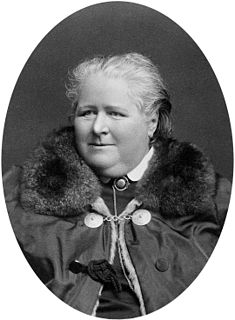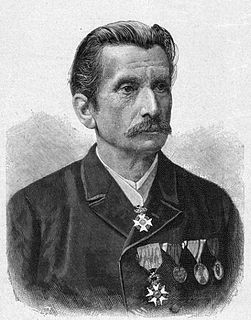A Quote by George Croly
The flowers are Nature's jewels, with whose wealth she decks her summer beauty.
Related Quotes
I fell for her in summer, my lovely summer girl, From summer she is made, my lovely summer girl, I’d love to spend a winter with my lovely summer girl, But I’m never warm enough for my lovely summer girl, It’s summer when she smiles, I’m laughing like a child, It’s the summer of our lives; we’ll contain it for a while She holds the heat, the breeze of summer in the circle of her hand I’d be happy with this summer if it’s all we ever had.
When she liked anyone it was quite natural for her to go to bed with him. She never thought twice about it. It was not vice; it wasn't lasciviousness; it was her nature. She gave herself as naturally as the sun gives heat or the flowers their perfume. It was a pleasure to her and she liked to give pleasure to others.
I think Nature, if she interests herself much about her children, must often feel that, like the miserable Frankenstein, with her experimenting among the elements of humanity, she has brought beings into existence who have no business here; who can do none of her work, and endure none of her favours; whose life is only suffering; and whose action is one long protest against the ill foresight which flung them into consciousness.
In the short summer night she learned so much. She would have thought a woman would have died of shame... She felt, now, she had come to the real bedrock of her nature, and was essentially shameless. She was her sensual self, naked an unashamed. She felt a triumph, almost a vainglory. So! That was how it was! That was life! That was how onself really was! There was nothing left to disguise or be ashamed of. She shared her ultimate nakedness with a man, another being.
Pride measures prosperity not by her own advantages but by the disadvantages of others. She would not even wish to be a goddess unless there were some wretches left whom she could order about and lord it over, whose misery would make her happiness seem all the more extraordinary, whose poverty can be tormented and exacerbated by a display of her wealth. This infernal serpent, pervading the human heart, keeps men from reforming their lives, holding them back like a suckfish.
In her enthusiasms she had always looked for something tangible: she had always loved church for its flowers, music for its romantic words, literature for its power to stir the passions and she rebelled before the mysteries of faith just as she grew ever more restive under discipline, which was antipathetic to her nature.
So immense are the claims on a mother, physical claims on her bodily and brain vigor, and moral claims on her heart and thoughts, that she cannot ... meet them all and find any large margin beyond for other cares and work. She serves the community in the very best and highest way it is possible to do, by giving birth to healthy children, whose physical strength has not been defrauded, and to whose moral and mental nature she can give the whole of her thoughts.
On the waves of the brook she dances by, The light, the lovely dragon-fly; She dances here, she dances there, The shimmering, glimmering flutterer fair. And many a foolish young beetle's impressed By the blue gauze gown in which she is dressed; They admire the enamel that decks her bright, And her elegant waist so slim and slight.
I saw sensuality as sacred, indeed the only sacredness, I saw woman and her beauty as divine since her calling is the most important task of existence: the propagation of the species. I saw woman as the personification of nature, as Isis, and man as her priest, her slave; and I pictured her treating him as cruelly as Nature, who, when she no longer needs something that has served her, tosses it away, while her abuses, indeed her killing it, are its lascivious bliss.
taking her hand he led her out into a broad stretch of hard sandy soil that the moon flooded with great splendor. They floated out like drifting moths under the rich hazy light, and as the fantastic symphony wept and exulted and wavered and despaired, Ardita's last sense of reality dropped away, and she abandonded her imagination to the dreamy summer scents of tropial flowers and the infinite starry spaces overhead, feeling that if she opened her eyes it would be to find herself dancing with a ghost in a land created by her own fantasy.






































